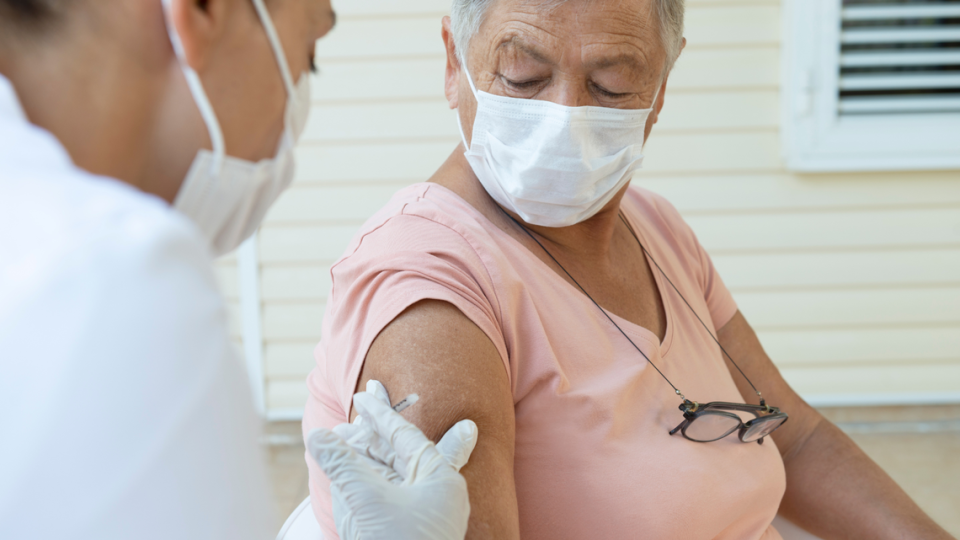Coronavirus and COVID remain health threats. Get vaccinated this fall, CDC says.
The Centers for Disease Control and Prevention recommends that most children and adults get updated COVID-19 and flu vaccines this fall. That holds for everyone but babies 6 months and younger, no matter how recently people had their last vaccine.
“Our top recommendation for protecting yourself and your loved ones from respiratory illness is to get vaccinated,” said Dr. Mandy Cohen, director of the CDC. “Make a plan now for you and your family to get both updated flu and COVID vaccines this fall, ahead of the respiratory virus season.”
New COVID-19 vaccines under development at Pfizer, Moderna and Novavax will target the recent JN1 lineage of COVID-19 variants. The lineage may have an edge against our immune system, CDC says.
The vaccines should be available around the end of August, according to Dr. David Weber, medical director of the Department of Infection Prevention at UNC-Chapel Hill.
Why do we need new vaccines?
About 75,000 people died from COVID-19 in the United States in 2023. Despite this, Weber noted that it’s no longer in the news headlines like it once was. “So out of sight, out of mind. That’s why people are not attuned to it.”
What will happen in 2024? “It’s hard to predict what this year will do,” said Weber. “But we do continue seeing hospitalizations and deaths, particularly in older individuals, people with underlying medical problems.”

Weber noted that getting the new vaccine is important because it’s targeting the current strains of the coronavirus now most common in the United States, and the effects of previous vaccinations wane over time.
News of the CDC’s new vaccination guidance comes after a World Health Organization (WHO) committee and the Food and Drug Administration (FDA) voted to advise vaccine manufacturers to design new vaccines based on the JN1 lineage of variants, including FLiRT variants, for 2024-2025. Previous vaccines targeted a different variant.
Vaccines designed to target the JN1 variants will allow the body to better recognize COVID-19 and fight against it, reducing the likelihood of severe symptoms and long COVID.
Are cases rising in North Carolina?
Not yet, is the short answer.
Dr. David Wohl, professor of medicine in the Division of Infectious Diseases at UNC, told The News & Observer that in addition to COVID-19 hospital admission rates, it is important to keep track of wastewater levels of viral particles.
Municipal wastewater can help track COVID-19 rates across a population because people’s positive tests are not always reported. The North Carolina Department of Health and Human Services maintains a dashboard tracking wastewater levels.
“Wastewater levels of COVID-19 virus have been stably low in NC,” Wohl said. He warns, however, that “they are increasing elsewhere and it is a matter of time before we see more here too.”
At least 15 states reported high levels of viral activity in wastewater.
Weber added that despite the overall low numbers in North Carolina, there is “a little bit of a boost, which is not what you normally expect in the summer.”
How can we protect ourselves?
The top recommendation from the CDC is to prepare to get vaccinated in the fall.
For people with impaired immune systems, there is a monoclonal antibody that has recently become available called Pemgarda, Weber noted. “For a couple of years we have not had any approved monoclonals that work, so that’s good,” he said.
Compared to other medications like Paxlovid and Remdesivir that work “fully after someone gets ill,” Pemgarda adds a layer of protection to prevent instead of treat COVID-19.
If you test positive for COVID-19, the CDC recommends that you return to normal activities if your symptoms are improving and you no longer have a fever for at least 24 hours.
If you believe you may have been exposed to or have symptoms of COVID-19, you can find free COVID-19 tests online close to you.


